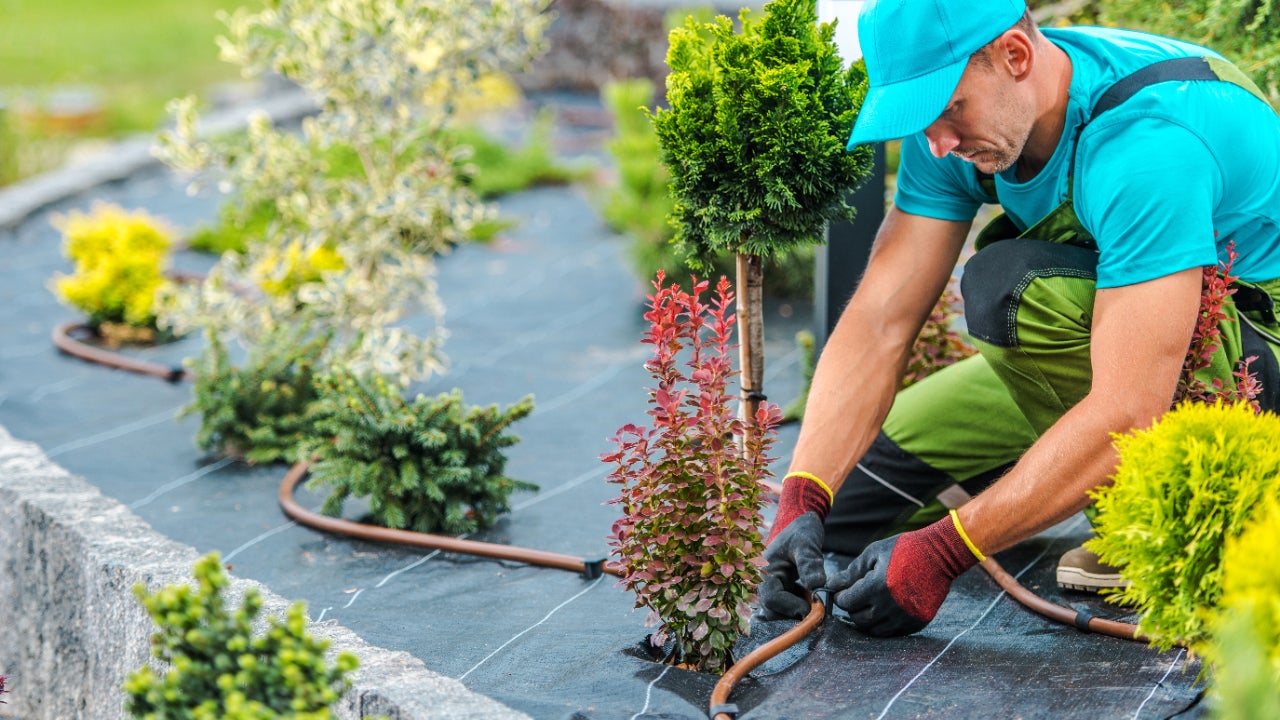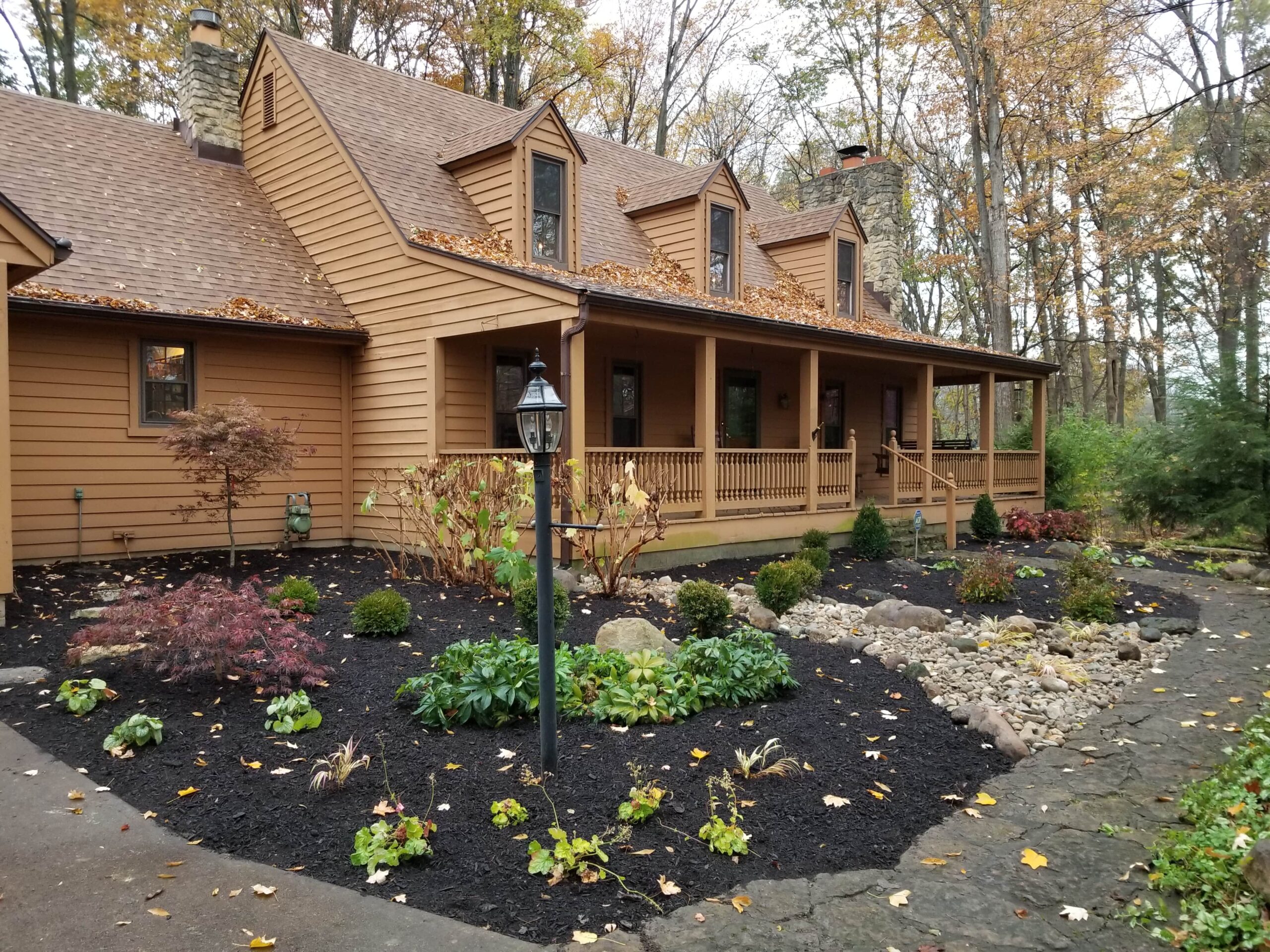Landscaping Rock: Transform Your Outdoor Space With Specialist Garden Design And Yard Improvement Providers
Style Concepts and Components in Landscaping
Have you ever wandered through a garden that seemed like a secret poem whispered by nature itself? That sense of consistency and balance doesn't happen by mishap. It's the cautious orchestration of design principles and components that transform a patch of earth into a living masterpiece. When you think about landscaping, what comes to mind? Color? Texture? Space? These components are the fibers woven into the material of every successful landscape.
Balance and Unity: The Foundation of Landscape Design

Balance can be in proportion, where each side mirrors the other like a perfectly folded origami, or unbalanced, where contrasts create dynamic stress-- consider an only oak standing tall versus a cluster of wildflowers. Unity ties whatever together, guiding the eye smoothly from one function to another. Ever observed how a properly designed garden never feels chaotic but rather invites calm exploration?
Crucial Element to Consider
- Line: It directs motion-- curved paths invite leisurely walks, while straight lines recommend procedure.
- Texture: Rough bark juxtaposed with soft grass adds sensory depth.
- Color: Beyond looks, color influences mood-- dynamic reds energize, while cool blues relieve.
- Scale and Percentage: An imposing sculpture overshadows delicate shrubs, so size relationships must balance.
- Centerpieces: Whether a water feature or a striking tree, focal points anchor the area visually.
Using These Concepts: A Personal Tale
Once, redesigning a yard, I dealt with a stubborn issue: how to produce a sense of enclosure without closing off the view. Instead of erecting a fence, I planted a staggered row of evergreens with varying heights-- a subtle play on proportion and scale. The outcome was a natural screen that felt like a relaxing nook instead of a barrier. Isn't it remarkable how thoughtful application of style aspects can solve useful difficulties while enhancing appeal?
| Principle | Impact | Example |
|---|---|---|
| Balance | Produces harmony | In proportion flower beds |
| Unity | Visual cohesion | Consistent plant style |
| Centerpiece | Draws attention | Water water fountain |
| Scale | In proportion aspects | Big trees with little shrubs |
| Texture | Varied sensory feel | Mix of rough stones and smooth leaves |
Exploring Diverse Landscaping Styles
Why choose a cookie-cutter garden when nature offers a scheme of styles as differed as the seasons? From the peaceful zen gardens of Japan to the wild, untamed appearance of naturalistic landscapes, each design shapes not just the soil, but the soul of your outside area. Do you long for order or turmoil in your plant?
Popular Landscaping Styles and Their Essence
- Official Gardens: Proportion and precision rule. Imagine walking through a labyrinth of perfectly clipped hedges where every corner whispers meticulous care.
- Cottage Gardens: Overflowing with color and charm, this design invites spontaneity, just like an artist's canvas splashed with lively flowers.
- Desert Landscaping: Welcome drought-resistant plants and stones; a nod to strength in arid environments, where every aspect tells a story of survival.
- Modern Minimalist: Tidy lines, basic shapes, and restrained plant combinations develop a serene, nearly meditative area-- less truly is more here.
Expert Tips for Picking Your Design

- Assess your soil and climate-- does the style grow naturally, or will you battle versus environment daily?
- Match the landscaping style to your way of life; do you desire a low-maintenance retreat or a hands-on project?
- Consider the architectural design of your home-- does your garden echo or contrast with your house?
- Usage native plants where possible; they provide eco-friendly balance and minimize the need for excessive watering or fertilizing.
Ever observed how some landscaping creates inform a story while others merely decorate? The secret depend on thoughtful layering-- mixing textures, heights, and colors to read more craft a living story. A buddy as soon as lamented her garden's absence of character until she presented a winding path lined with fragrant herbs. Unexpectedly, every visit became a sensory journey, not simply a visual experience.
Essential Tools and Equipment for Mastering Landscaping
Ever tried battling with a stubborn root without a pruning saw - Landscape Design.?. !? It resembles trying to paint a masterpiece with a broom. The right tools don't just make the job simpler-- they change your whole approach to landscaping
Consider the modest spade. It's more than just a hole-digger; a sharp, well-balanced spade can shape the earth with finesse, whether you're edging a flower bed or transplanting a delicate shrub. Beware: dull edges turn effort into disappointment.
Must-Have Hand Tools
- Hand trowels for accurate planting
- Ergonomic loppers to prune without pressure
- Garden forks that aerate soil, improving root growth
- Weeders that slip under pesky invaders without troubling next-door neighbors
Power Devices That deserves the Financial investment
When surface gets hard, a rototiller breathes life into compacted ground, turning hardpan into an inviting bed for seeds. Even with modern devices, comprehending soil texture and moisture material stays essential-- straining the earth can lead to compaction, the quiet enemy of healthy landscaping.
| Devices | Best Use | Expert Idea |
|---|---|---|
| Hedge Trimmers | Forming bushes and hedges | Cut during dry weather condition to prevent fungal infections |
| Wheelbarrow | Carrying soil, mulch, and plants | Balance loads equally to minimize back stress |
| Leaf Blower | Clearing particles rapidly | Usage morning or late evening to lessen disruption |
Have you ever saw how the smallest tool can pivot your landscaping experience? A set of quality gloves shields your hands however also provides unanticipated grip, making each task smoother (Landscape Design). The secret lies in pairing the right equipment with technique-- sharp tools wielded with care outperform brute force any day
Ecological Effect and Sustainability in Landscaping
Have you ever paused to think about how much water your garden guzzles during a drought? Water conservation isn't simply a buzzword-- it's a lifeline for sustainable landscaping. When plants are picked without regard to local climate, the thirst they require can drain resources faster than one might imagine. I recall a task where native drought-resistant plants changed a dry yard into a vibrant oasis, slashing water use by over 40%. Why go for thirsty exotics when nature's own palette loves less?
Soil Health: The Unsung Hero

Soil isn't simply dirt; it's a living tapestry teeming with microbes that govern plant health and carbon sequestration. Overlooking soil deterioration is like building a house on sand. Composting organic waste and incorporating cover crops can rejuvenate worn out earth, boosting nutrition cycling and water retention. Ever seen how mulching can all at once reduce weeds and lock wetness in? That's the sort of double-duty approach that raises sustainable landscapes.
Expert Tips to Improve Eco-Friendly Landscaping
- Select native or adaptive plants to reduce chemical inputs and watering needs.
- Incorporate rain gardens or bioswales to manage stormwater runoff effectively.
- Limit hardscaping surfaces to avoid heat islands and promote groundwater recharge.
- Use permeable products for paths and patios to encourage natural water seepage.
- Execute layered planting strategies to mimic natural environments and increase biodiversity.
Stabilizing Aesthetics with Ecology
Can a garden be both a banquet for the eyes and a sanctuary for wildlife? Definitely. I've seen landscapes where pollinator-friendly plants draw in bees and butterflies, turning backyards into buzzing environments. This isn't just a feel-good gesture; it helps in community restoration, helping native species rebound. The secret lies in thoughtful design that welcomes flaw-- leaves delegated break down, wildflowers permitted to flower untamed.
| Practice | Environmental Advantage | Execution Pointer |
|---|---|---|
| Rainwater Harvesting | Minimizes drinkable water use | Set up barrels linked to downspouts |
| Native Plant Selection | Supports regional animals and minimizes irrigation | Seek advice from regional plant guides |
| Organic Mulching | Enhances soil wetness and fertility | Usage shredded leaves or bark |